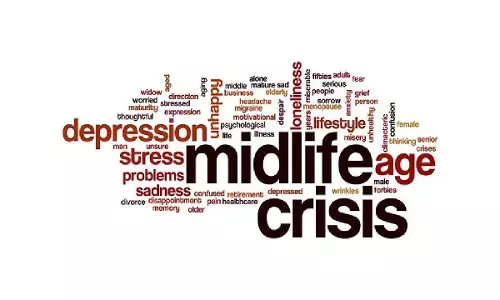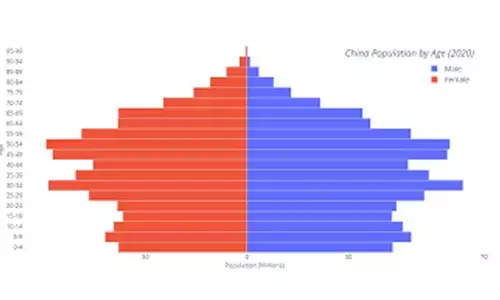Maternal PCOS effect can make sons obese: Study

Sons born to women with polycystic ovary syndrome (PCOS) are three times more likely to develop obesity, a precursor to many diseases including heart disease and diabetes, according to a study.
PCOS is caused by the ovaries producing too much of the sex hormone testosterone. The disease affects around 15 per cent of women of childbearing age worldwide and is a condition that can make it difficult to get pregnant. In addition, the disease is associated with various health problems such as diabetes, obesity, and mental illness.
Researchers from Karolinska Institutet in Sweden said the findings highlight a previously unknown risk of passing PCOS-related health problems across generations through the male side of a family.
While it is not yet clear how sons of women with PCOS are affected, research suggests that they are more likely to have weight and hormone problems.
The study, published in Cell Reports Medicine, also showed that daughters of women with PCOS have a five-fold risk of developing the same disease.
“We discovered that sons of women with PCOS have a three-fold risk of obesity and of having high levels of ‘bad’ cholesterol, which increases the risk of developing insulin resistance and Type 2 diabetes later in life,” said Elisabet Stener-Victorin, Professor at the Department of Physiology and Pharmacology, Karolinska Institutet.
“The findings are important because they highlight the risk of passing health problems down through the male side of a family, and they may help us in the future to find ways to identify, treat and prevent reproductive and metabolic diseases at an early stage,” she added.
In the study, the team included over 460,000 sons born in Sweden between July 2006 and December 2015. Of these, roughly 9,000 were sons of women with PCOS. The researchers then identified which of the children were obese.
The findings were also confirmed in a mouse study, where the researchers examined male offspring of female mice that before and during pregnancy were fed either a standard diet or a diet rich in fat and sugar, and were exposed to high levels of the male sex hormone dihydrotestosterone during pregnancy to mimic the pregnancy of normal weight individuals and obese women with PCOS.
The male mice were then fed a standard diet until adulthood when their fat distribution and metabolism were examined.
“We could see that these male mice had more fat tissue, larger fat cells, and a disordered basal metabolism, despite eating a healthy diet,” Stener-Victorin said.
To investigate the reproductive function of the offspring and whether physiological characteristics can be passed on from generation to generation, the first-generation male mice were mated with healthy female mice that were not exposed to male sex hormones or a diet rich in fat and sugar. The whole process was repeated in the second generation to reach the third generation which is the first generation that was not affected by the mother condition.
“Through these experiments, we can show that obesity and high levels of male hormones in the woman during pregnancy can cause long-term health problems in the male offspring. Their fat tissue function, metabolism, and reproductive function deteriorate, which in turn affects future generations,” said Qiaolin Deng, Associate Professor at the varsity.
















